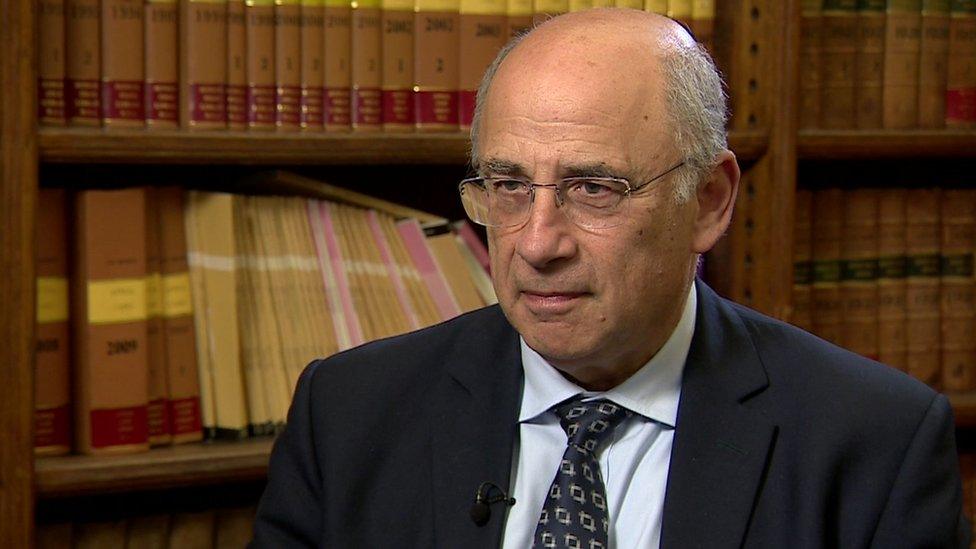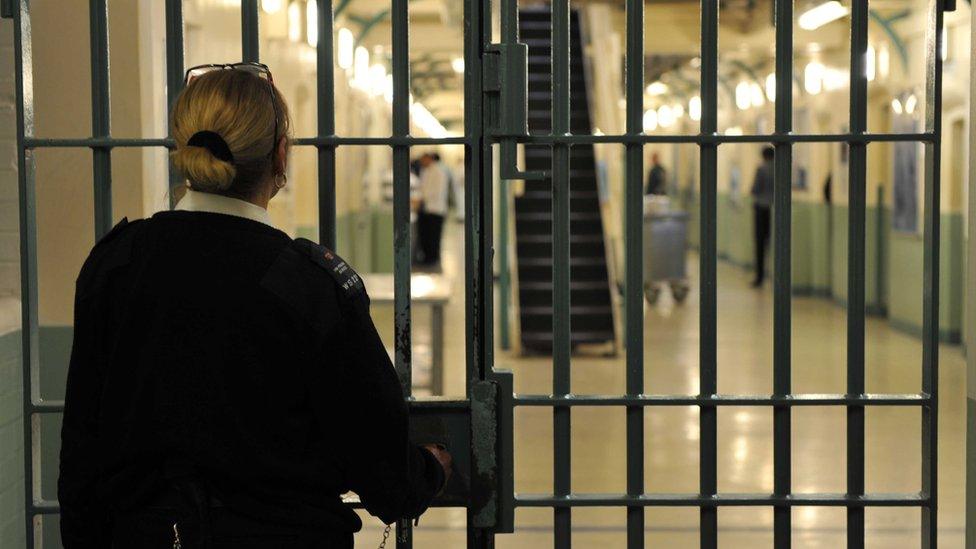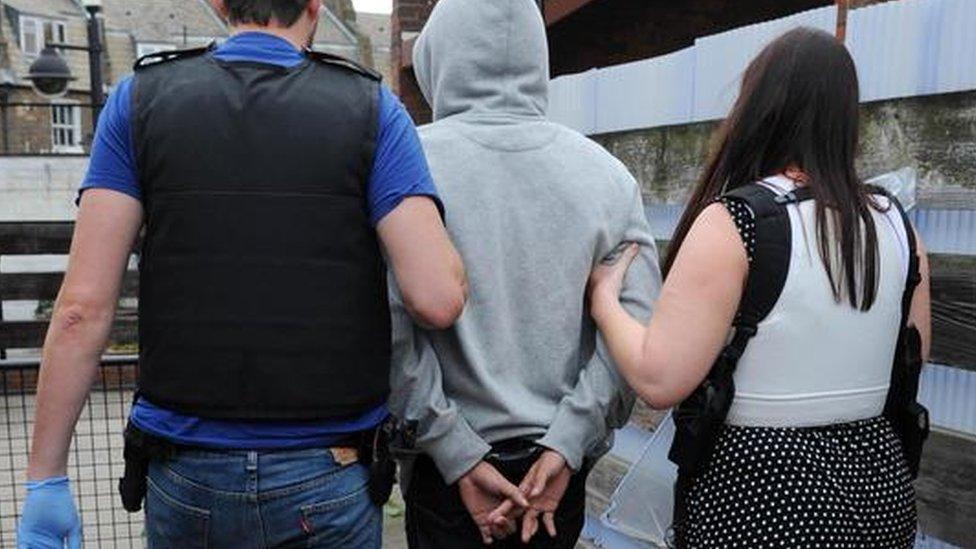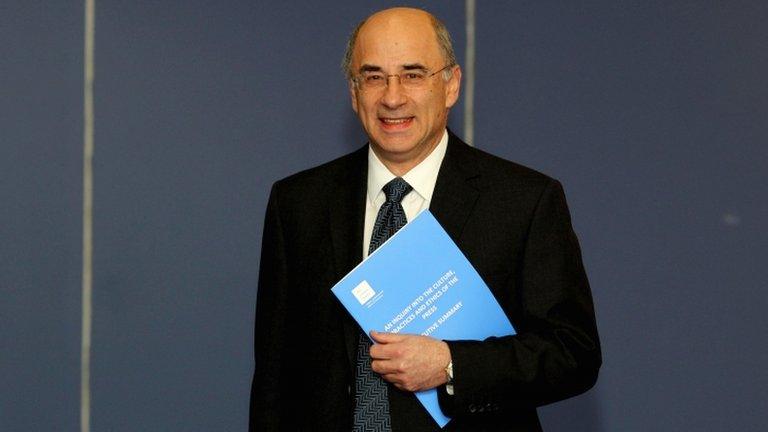Sir Brian Leveson warns crimes are not being prosecuted
- Published

Sir Brian Leveson is retiring as head of criminal justice for England and Wales
The most senior criminal judge in England and Wales has expressed "enormous concern" that many crimes are not being prosecuted.
Sir Brian Leveson, who retires on Friday as Head of Criminal Justice, has warned the system could collapse without investment.
He also told the BBC the government would be wrong to abolish prison sentences of less than six months.
The government said it was investing £1bn in modernising the justice system.
In the wake of the phone hacking scandal Sir Brian became a national figure, chairing the public inquiry into the culture, practices and ethics of the press.
In his role as head of criminal justice he led on the delivery of criminal justice for England and Wales.
Speaking exclusively to the BBC, he revealed he leaves with grave concerns.
"It is very, very concerning that citizens suffer wrongs and are not obtaining redress through the criminal courts," he said.
"The criminal courts are a critical part of our society and they are the way that society reflects the minimum standards of behaviour which it requires of all its citizens and therefore it is an enormous concern that crimes are not being detected and crimes are not being prosecuted," he added.
Risk of 'collapse'
Last year a report from the Bar Council, external found the Ministry of Justice had sustained 27% cuts in real terms over a decade and the Crown Prosecution Service 34%.
Between September 2010 and September 2017, the number of police officers in England and Wales fell by almost 20,000, according to the Home Office, external.
Home Office figures also suggested 9% of reported crimes result in a charge or summons - the lowest detection rate since 2015.
In perhaps the starkest assessment yet by a senior judicial figure, Sir Brian said: "The criminal justice system has to be considered by the government and recognised for its enormous value to our community.
"I don't think there is sufficient resource to cope with its requirements. Ultimately, if the system doesn't get appropriate investment the system can collapse."
A Ministry of Justice spokesperson said: "Our legal system is rightly revered and renowned across the world and we continue to invest billions of pounds into it each year, including £1bn on modernisation."

Earlier this year, Justice Secretary David Gauke said there was a "very strong case" for abolishing prison sentences of less than six months in England and Wales, aside from a few "closely defined exceptions" such as people convicted of violent or sexual crimes.
The MoJ said short sentences "are too often ineffective... we are exploring options for robust community alternatives that would make the public safer".
It added it was reforming the probation system "to ensure offenders are monitored and conditions enforced, while directing them towards services that will help them to turn their backs on crime for good".
'Digital strip search'
But Sir Brian, who is also retiring from his role as president of the Queen's Bench Division, said an attempt made in 1991 to restrict the rights of judges to pass sentences of less than six months "did not work".
Insisting judges must be able to jail people for less than six months, he said: "The multiple shoplifter who shoplifts again and again and again, who is given every single non-custodial option going but continues, often to feed a drug habit... there must be a time when the courts say enough is enough."
The judge also addressed the concerns of campaigners that complainants in rape cases will be deterred from coming forward if they have to hand their mobile devices to the police and undergo what has been described as a "digital strip search".
"We do have to have a mechanism of being able to validate or not invalidate complaints by checking and, although I readily recognise the need to protect the privacy of those who complain of sexual offences, we can't do so at the entire expense of protecting the rights of a defendant to a fair trial," he said.
- Published19 July 2018

- Published29 November 2012
